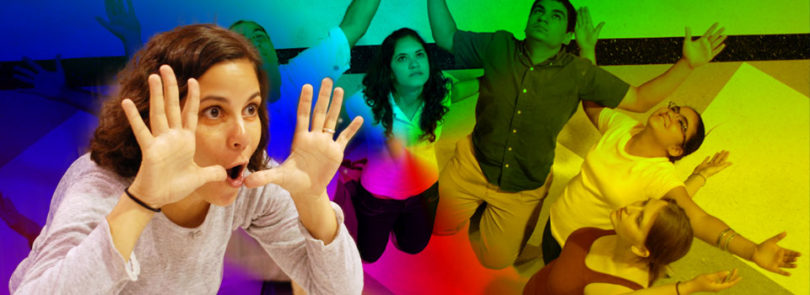Since the beginning of her career as a bilingual elementary educator in South Central Los Angeles, Melisa (Misha) Cahnmann-Taylor has focused on how to understand the complexities of U.S. bilingual and TESOL—Teaching English to Speakers of Other Languages—education and the intersections between language, culture, identity, class and power.
Cahnmann-Taylor, an associate professor of language and literacy education in UGA’s College of Education, seeks a complex, creative and humanistic approach to teacher training and research in teacher education, one which honors lived experience and cultivates the potential for cross-cultural dialogue and deep listening in the classroom, workroom, staff development center and university.
Her scholarship, what she refers to as “scholARTistry,” lies along continua between languages, cultures and disciplinary boundaries. If teachers want to create positive change in the lives of their students, then they must first be able to create positive change in their own lives, she said.
Her book titled “Teachers Act Up. Creating Multicultural Learning Communities Through Theatre” (Teachers College Press 2010) describes a powerful professional development approach that merges the scholarship of critical pedagogy with the Theatre of the Oppressed. Participants “act up” in order to explore real-life scenarios and rehearse difficult conversations they are likely to have with colleagues, students, administrators and parents.
But why theatre? “Overall, I believe intellectual considerations are given too much attention whereas other learning modalities including the physical and imaginative are undervalued and/or invisible in many classrooms,” she said. “The book and workshop serve as an invitation for the body to join the mind in a transformative approach to teacher education.”
She and her co-authors have practiced the theatrical strategies presented in the book with pre- and in-service teachers in numerous contexts, including college courses, professional development seminars and PreK-12 classrooms. They include step-by-step instructions and vivid photographs to help readers use these revolutionary theatre strategies in their own contexts for a truly unique learning experience.
Cahnmann-Taylor is hosting another one-day professional development workshop for local teachers titled “Theatre for Best Practice with English Language Learners” on Oct. 14 at the Georgia Center for Continuing Education.
Through hands-on interactive activities and lessons geared to specific grade levels and language proficiencies, teachers develop the knowledge and skills to implement drama strategies for second language acquisition in the TESOL and foreign language classroom as well as in general language arts classroom to promote dynamic, multicultural communication strategies for all.
“We all want our students to have access to rigorous, high-quality academics that result in high levels of numeracy and literacy, but we don’t all agree on the path to get there,” she said. “In a time where so much (too much) attention is focused on seated class work and testing, students and their teachers need more opportunities to experience alternative paths to the same rigorous academic end. Performance is grounded in action, reflexivity and dialogue and results in joyful, engaged learning.”
Cahnmann-Taylor launched a new blog in August 2011 to promote her work and that of her students, titled “Teachers Act Up!.”
“I am trying to create this ongoing educational tool. Anyone that buys the book or studies with me is entering new and potentially scary creative territory,” she said. “If you want to teach the games again, then most students/readers appreciate a little reminder. So I have over 40 different videos online that showcase some of the performances, instructions for leading the game and some discussion of what takes place, why, to what end, etc. This is best working as a compliment to the book.
The current blog posts mostly feature the Poetry for Educators work that she is teaching this semester.






